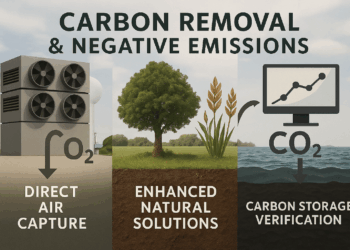The fossil fuel industry is facing mounting pressure as environmental groups ramp up legal challenges and activism to hold companies accountable for their role in climate change. From courtrooms to the streets, these efforts are reshaping the business landscape and forcing companies to confront their environmental impact like never before.
Legal Battles Heat Up
Environmental organizations are increasingly turning to the courts to address climate change, filing lawsuits against major fossil fuel companies. These cases aim to hold corporations liable for decades of greenhouse gas emissions, which scientists link to rising global temperatures and extreme weather events.
One high-profile case involves several U.S. cities suing oil giants, alleging that these companies misled the public about the environmental risks of fossil fuels. The lawsuits seek financial compensation to cover the costs of climate-related damages, such as flooding, wildfires, and infrastructure repair.
“The fossil fuel industry has known about the risks of climate change for decades and failed to act responsibly,” said Lisa Moran, a spokesperson for Climate Justice Now, a nonprofit involved in several legal actions. “These lawsuits are about accountability and ensuring that those responsible pay their fair share of the costs.”
The outcomes of these cases could set legal precedents, potentially exposing companies to billions of dollars in liabilities. Industry representatives argue that such lawsuits are misguided, with some claiming that governments, not corporations, should bear responsibility for climate policy.
Activism on the Rise
While legal battles unfold, climate activism is gaining momentum, further challenging the fossil fuel industry. Protests, boycotts, and public campaigns are pressuring businesses and governments to adopt more sustainable practices and transition to renewable energy.
In recent months, youth-led organizations like Fridays for Future and Extinction Rebellion have staged large-scale demonstrations, drawing global attention to the urgency of climate action. Activists are targeting not only fossil fuel companies but also financial institutions that fund these industries.
“Climate change is not just an environmental issue; it’s a matter of justice and survival,” said Nadia Patel, a 19-year-old activist who participated in a recent protest outside a major bank. “We need businesses to stop investing in destruction and start supporting solutions.”
Business Implications
The combined force of legal challenges and activism is creating significant risks for the fossil fuel industry. Shareholders and investors are increasingly scrutinizing companies for their environmental, social, and governance (ESG) performance. Many firms are facing pressure to disclose their carbon footprints, set emissions reduction targets, and invest in cleaner technologies.
Some companies are responding by pledging to achieve net-zero emissions and expanding their renewable energy portfolios. However, critics argue that these commitments often fall short of what is needed to address the climate crisis.
A Turning Point?
The fossil fuel industry’s response to these challenges will likely shape its future. Experts suggest that companies that fail to adapt risk losing market share and facing reputational damage.
“This is a pivotal moment for the industry,” said Dr. Samuel Greene, an energy policy expert. “The question is whether companies will embrace the transition to a low-carbon economy or resist until the costs become insurmountable.”
As legal challenges and activism intensify, the message is clear: businesses must take stronger action on climate change. Whether through litigation, public pressure, or market forces, the push for accountability is reshaping the business of energy.








